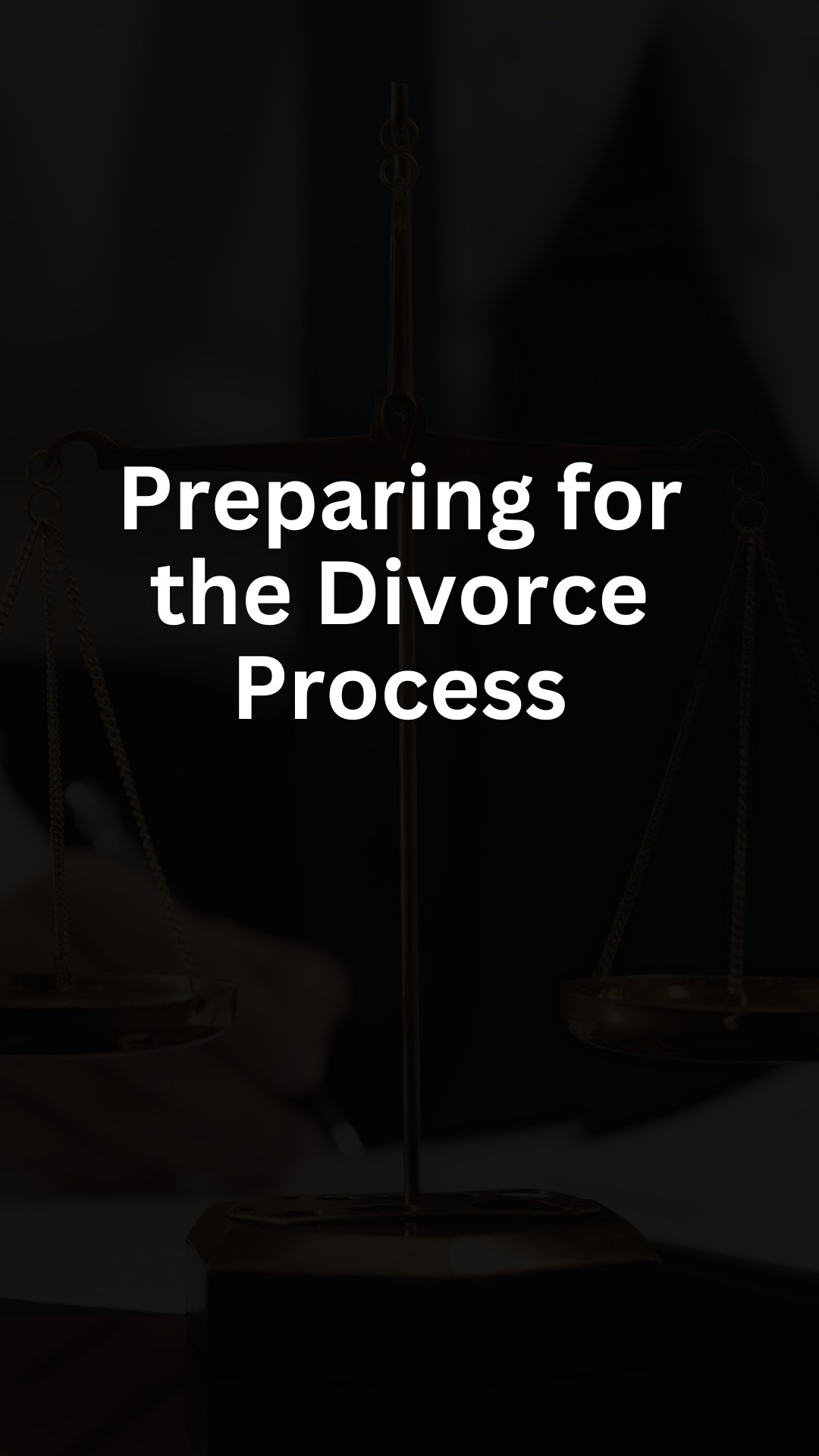Divorce is hard, but divorce with a narcissistic partner can be even more challenging.
When dealing with a narcissist, you need to be prepared for manipulation and emotional games. You should also know what to expect and how to handle it effectively.
Narcissists often make the process drag out, trying to control the situation. They might use children, money, or emotional manipulation to get what they want.
Understanding their tactics can help you stay one step ahead and protect yourself. Remember, it’s not about winning but about standing your ground and maintaining your sanity.
Focus on clear communication and setting boundaries.
Keep records of all interactions and seek professional support when needed.
Having a strong support system will make a big difference in coping with the stress and pressure. You can navigate this difficult road with the right approach and survive.
Understanding Narcissism

Narcissism involves a pattern of self-centered, arrogant thinking and behavior. A narcissistic partner can make a relationship challenging due to their need for admiration and lack of empathy.
Traits of a Narcissistic Partner
A narcissistic partner often displays certain traits that make them difficult to live with. They have an inflated sense of self-importance. They believe they are special and unique, expecting others to recognize this without question.
They also tend to dominate conversations, dismissing or belittling the opinions of others.
They crave constant attention and admiration. When they don’t receive it, they may become angry or upset.
They may also lack empathy, showing little regard for their partner’s feelings. They might manipulate or control their partner to get their own way. This can include making their partner feel guilty or ashamed.
Narcissists can also be very charming at first. They can be charismatic and engaging, drawing people in with their energy. Over time, though, the negative traits often become more apparent, causing strain in the relationship.
Narcissism and Marital Dynamics
In a marriage, a narcissistic partner can create an environment of imbalance. The non-narcissistic partner might feel like they are always giving while the narcissist is always taking. This can lead to feelings of resentment and frustration.
Communication often suffers in these relationships. The narcissistic partner may not listen or may devalue what their partner says. This can make resolving conflicts very difficult.
The lack of empathy can make the non-narcissistic partner feel isolated and unsupported.
Decision-making can also be challenging. The narcissist’s need for control means they may insist on having the final say in all matters, small or large.
This power imbalance can leave the non-narcissistic partner feeling powerless and unimportant.
Legal Considerations in Divorce

When divorcing a narcissistic partner, understanding the legal complexities is crucial. Important aspects include filing for divorce, child custody and support issues, and the division of assets and debts.
Filing for Divorce
When filing for divorce, you need to be prepared for your partner’s possible attempts to control the process. This might include delaying tactics or false accusations.
You should gather all necessary documents, such as financial records and communication evidence, as early as possible.
Consider hiring a lawyer experienced in dealing with high-conflict divorces. They can help you navigate the legal system and ensure your rights are protected.
Be honest and thorough with your lawyer to develop a strong case.
Stay calm and document all interactions with your partner. This will help provide evidence if needed. Being organized and proactive can make a significant difference in this stage.
Child Custody and Support Issues
Child custody and support problems can become heated when dealing with a narcissistic partner. They may try to use the children as pawns to hurt or control you.
It’s essential to focus on the children’s best interests and gather evidence of your partner’s behavior.
A detailed parenting plan is crucial. This plan should outline custody schedules, decision-making processes, and any other important aspects of parenting. Courts appreciate clear and structured plans.
Keep records of all communications and actions related to your children. This can help prove your dedication to their well-being and provide evidence if disputes arise.
Consult with a lawyer to ensure your plan is fair and considers potential challenges.
Division of Assets and Debts
Dividing assets and debts can be contentious with a narcissistic partner. They might hide assets or manipulate information to gain an advantage.
Identifying all marital property, including bank accounts, real estate, and personal property, is key.
Work with a financial expert if necessary. They can help uncover hidden assets and ensure all debts are fairly divided.
Make sure to document all assets and debts, including any evidence of your partner’s attempts to deceive the system.
Consult your lawyer to protect your financial interests. They can help create a fair settlement agreement and advocate for you in court if necessary.
Preparing for the Divorce Process

Preparing for a divorce from a narcissistic partner requires careful planning and support. Your focus will be on gathering key documents, finding a good support system, and choosing the right attorney.
Gathering Documentation
Collecting the right documents early is crucial.
Start with financial records such as bank statements, tax returns, and property deeds. These will help prove your financial situation and protect your assets.
Keep copies of important communication, like texts and emails. Document any abusive behavior, if applicable, as it can support your case.
Pay extra attention to evidence involving finances and child custody.
Organize everything in a secure place. Digital copies can be stored on a password-protected device. This ensures you have access to all information when needed.
Building a Support System
Dealing with a narcissistic partner can be emotionally draining.
Surround yourself with supportive friends and family. They can offer emotional and sometimes financial support. Be honest with them about your situation and needs.
Consider joining a support group for people going through similar experiences. Sharing your struggles and hearing others can provide comfort and advice. Look for groups online or in your community.
Talk to a therapist or counselor, especially one experienced with narcissistic abuse. Professional guidance can help you navigate your emotions and make sound decisions throughout the process.
Choosing the Right Attorney
Finding the right attorney is critical.
You need someone experienced in dealing with narcissistic personalities. They should understand the nuances of your situation and be prepared for potential manipulation tactics.
Look for attorneys with a strong track record in family law and custody battles.
Consult friends, read reviews, and interview multiple lawyers before making your decision.
Make sure they clearly communicate their strategy and fees. Understand their approach and feel comfortable with them representing you.
Communicating with a Narcissistic Partner

When dealing with a narcissistic partner during a divorce, it’s crucial to set boundaries, communicate effectively, and recognize manipulation tactics.
Setting Boundaries
Boundaries are essential to protect your emotional well-being.
Clearly define what is acceptable behavior. Make sure you communicate your limits firmly and consistently.
Establish physical and emotional boundaries. For example, set times for discussing divorce-related issues to avoid constant stress.
Remain firm, even if your partner attempts to breach these boundaries. It’s important to remember that boundaries are there to protect you and must be upheld.
Effective Communication Strategies
Effective communication with a narcissistic partner requires calmness and precision.
Use “I” statements to express your feelings without sounding accusatory. For example, say “I feel upset when you speak to me that way” instead of “You always upset me.”
Keep conversations factual and to the point. Avoid emotional responses which may fuel their behavior.
Practice active listening by repeating what they say to ensure they feel heard, but avoid unnecessary agreements.
Handling Manipulation
Narcissistic partners often use manipulation to maintain control.
Be aware of tactics like gaslighting, where they make you doubt your reality.
Stay confident in your understanding of events.
Do not engage in arguments that twist your words or emotions.
Keep records of conversations, if necessary, to have a clear account of what was discussed.
Coping Mechanisms

When dealing with divorce from a narcissistic partner, it’s important to prioritize your well-being and seek support from professionals to navigate this challenging process.
Self-Care Practices
Taking care of yourself is crucial.
Start by setting boundaries with your ex-partner to protect your mental health.
Exercise is a great stress reliever, so try to stay active with activities like walking, yoga, or swimming.
Healthy eating also has a big impact. Aim for balanced meals to keep your energy up.
Sleep is essential too. Aim for 7-9 hours a night to help maintain your mood and focus.
Social support can make a difference.
Stay connected with friends and family who understand your situation. Journaling your thoughts and feelings can also help you process emotions.
Professional Help and Therapies
Seeking professional help can provide guidance and support during this time.
Therapists or counselors can help you understand and manage your emotions.
Support groups offer a space to share experiences and gain insight from others in similar situations.
Consider therapies such as Cognitive Behavioral Therapy (CBT) which can help change negative thought patterns.
Legal advice may also be necessary to navigate the divorce process effectively. An experienced attorney can help protect your rights and ensure a fair outcome.
Co-Parenting Challenges

Co-parenting with a narcissistic partner can be extremely difficult. Setting clear boundaries and managing conflicts are key to making the process smoother.
Establishing Co-Parenting Boundaries
Agreeing on strict boundaries is crucial. You should have concrete rules about how decisions regarding your child will be made.
This includes deciding on pick-up and drop-off times, as well as medical and educational decisions.
It helps to keep communication formal and in writing. Emails and text messages create a clear record. Avoid face-to-face confrontations which can escalate quickly.
Creating a shared calendar can help. This minimizes misunderstandings about schedules and reduces opportunities for manipulation.
Managing Conflicts
Conflicts will arise, so having strategies to manage them is important.
Always stay calm, even when provoked. Narcissistic partners may try to trigger reactions.
Use a neutral third party if discussions become heated. Mediators or parenting coordinators can help when direct communication fails.
Document everything. Keep a detailed log of interactions and decisions regarding your child. This can be useful if legal issues emerge. Remember to prioritize your child’s well-being over winning arguments.
Financial Implications

Divorce can take a toll on your finances, especially when dealing with a narcissistic partner. It’s crucial to understand the details of alimony and support, and engage in thorough financial planning for life post-divorce.
Understanding Alimony and Support
Alimony, also known as spousal support, is money paid to a spouse after divorce. This support helps you maintain your lifestyle.
Narcissistic partners might try to avoid paying or offer less, so it’s important to gather all financial documents. Courts look at income, duration of the marriage, and standard of living.
- Make a list of assets and debts.
- Keep records of all financial transactions.
- Hire a financial advisor if needed.
Having a knowledgeable attorney can also help ensure you get fair support. Understand your rights and don’t let your partner manipulate the situation.
Financial Planning Post-Divorce
After your divorce, you need a new financial plan.
Start by creating a budget that includes your income and expenses. Look at immediate needs and future goals like retirement or education funds.
- List all income sources, including alimony or child support.
- Track all your expenses.
- Create a savings plan for emergencies.
Consider speaking with a financial planner to help secure your financial future. They can provide advice on managing debts, investments, and savings.
This planning lets you control your finances and reduces stress during this challenging time.
Life After Divorce

Moving on from a divorce with a narcissistic partner means focusing on rebuilding your personal identity and navigating future relationships carefully.
Rebuilding Personal Identity
After a divorce, it’s important to reconnect with who you are. Narcissistic partners often make it hard for you to feel like yourself.
Start by picking up hobbies you used to love or trying new ones. Surround yourself with friends and family who support you.
Set goals for your future. These can be big or small, like taking a class or planning a trip. Setting goals helps you feel a sense of purpose and direction.
Self-care is also crucial. Exercise, eat healthy foods, and get enough sleep. These simple habits can boost your mood and energy.
Consider talking to a therapist. Professional help can provide valuable insights and strategies for dealing with past trauma. It’s also a safe space to explore your feelings.
Journaling can be another helpful tool. Write about your experiences and emotions. This can help clear your mind and provide perspective.
Navigating Future Relationships
Entering new relationships can be challenging after a divorce with a narcissistic partner.
Take your time. You do not need to rush into anything. Trust takes time to build again.
Start by forging strong friendships first. These can act as a foundation for future romantic relationships.
Be cautious and observe patterns. If someone shows signs of narcissism, like loving only themselves or lack of empathy, take it seriously.
Learn to set boundaries and stick to them. Be clear about what is and isn’t acceptable in a relationship.
Communication is key. Be honest about your past and your needs. A healthy relationship involves open dialogue and mutual respect.
Lastly, never settle. You deserve a partner who cares for you and treats you well.
Legal Rights and Protection

When dealing with a narcissistic partner during a divorce, knowing your rights is essential for safeguarding yourself and your interests. This includes understanding how to obtain protective orders and knowing what legal changes you can seek.
Protective Orders Against Abuse
If you face abuse, you can seek a protective order. These orders can shield you from physical, emotional, and verbal abuse.
Filing for a protective order involves submitting a request to the court detailing the abuse incidents. You may need evidence such as police reports, medical records, or witness testimonies.
Temporary protective orders can be issued quickly. For a more permanent solution, a hearing is required where both sides can present their case.
Violating a protective order can result in serious consequences for your partner, including arrest and criminal charges.
Legal Recourse and Modifications
You have legal options to modify existing agreements if they no longer serve your best interests. For instance, changes to child custody or spousal support may be necessary.
You can file a motion to request these adjustments in court.
Gather proof showing why the changes are needed. This may include financial statements, records of communication, or behavior that demonstrates a change in circumstances.
The court will review the evidence and decide if adjustments are justified. This ensures your legal rights adapt to new situations and protect your well-being.
Documentation and Record Keeping

When dealing with a narcissistic partner during a divorce, keeping detailed records is vital.
Start by collecting evidence. Keep texts, emails, and voice messages. These can show important interactions. Take screen shots and print copies. Your lawyer will need these.
Maintain a journal. Note down incidents that happen, including dates, times, and descriptions. Write about any aggressive or manipulative behavior. This can help you remember details later.
Use a calendar to track events. Mark court dates, meetings, and calls with your lawyer, as well as interactions with your partner.
Keep financial records. Save bank statements, pay stubs, tax returns, and receipts. This helps show your financial status and any changes.
Organize documents in a binder or digital folder. Use tabs or labels, such as:
- Communication
- Financial
- Legal
- Personal journal
Consider using apps or tools to back up your data. Cloud storage can keep your files safe and accessible.
Consult your lawyer about what evidence is useful. They can guide you on what to collect and how to present it in court.
Strategies for Conflict Resolution

When dealing with a narcissistic partner during a divorce, conflicts are inevitable. Here are a few strategies to manage and resolve these conflicts effectively:
1. Stay Calm and Composed
Try not to react emotionally. Keep your cool. This will help you think clearly and make better decisions.
2. Set Clear Boundaries
Establish what is acceptable and what is not. Communicate these boundaries firmly and stick to them.
3. Use “I” Statements
Frame your concerns with “I” statements. For example, say “I feel hurt when…” instead of “You always…”.
4. Document Everything
Keep a record of all communications and incidents. This documentation can be useful in court or mediation.
| Situation | How to Respond |
|---|---|
| Blame or Criticism | “I hear your point, but I feel differently.” |
| Manipulative Behavior | “I prefer to stick to the agreed terms.” |
| Verbal Attacks | “Let’s discuss this later when we’re calm.” |
5. Limit Contact
If face-to-face meetings are too stressful, try communicating through email or texts.
6. Seek Mediation
A neutral third party can help mediate disputes. This can be less confrontational than court.
7. Take Care of Yourself
Prioritize your own well-being. Stress can take a toll, so make sure to have self-care routines.
Frequently Asked Questions

When going through a divorce with a narcissistic partner, you may face added challenges. These include handling manipulation, protecting your finances, and ensuring your own well-being.
What are effective strategies for managing the stages of divorcing a narcissist?
Be clear and decisive in your actions. Document everything, including conversations and financial transactions. Limit personal contact and communicate through lawyers or written forms.
How can you protect your finances when initiating a divorce with a narcissist and limited funds?
Start by gathering all financial documents. Create a separate bank account and budget for legal fees. Consider consulting with a financial advisor who has experience in divorce cases.
What are the best practices for safeguarding your well-being while divorcing a narcissist after many years of marriage?
Establish a strong support system of friends, family, or a therapist. Set boundaries and stick to them. Focus on self-care, like exercise and hobbies, to reduce stress.
What techniques can be employed to counteract manipulation by a narcissistic spouse during divorce proceedings?
Stay calm and focused during interactions. Stick to the facts and avoid emotional reactions. Rely on your lawyer to handle complex communications and negotiations.
How can one recognize and deal with the specific manipulation tactics used by narcissists throughout the divorce process?
Watch out for gaslighting, blame-shifting, and playing the victim. Keep a record of all interactions. Use direct communication and insist on sticking to the agreed terms.
What is the likelihood of a judge identifying narcissistic behavior and what impact can it have on the outcome of a divorce?
Judges may not always recognize narcissistic traits directly. However, the patterns of manipulation and lack of cooperation can be evident. These behaviors can influence decisions on custody and asset division.